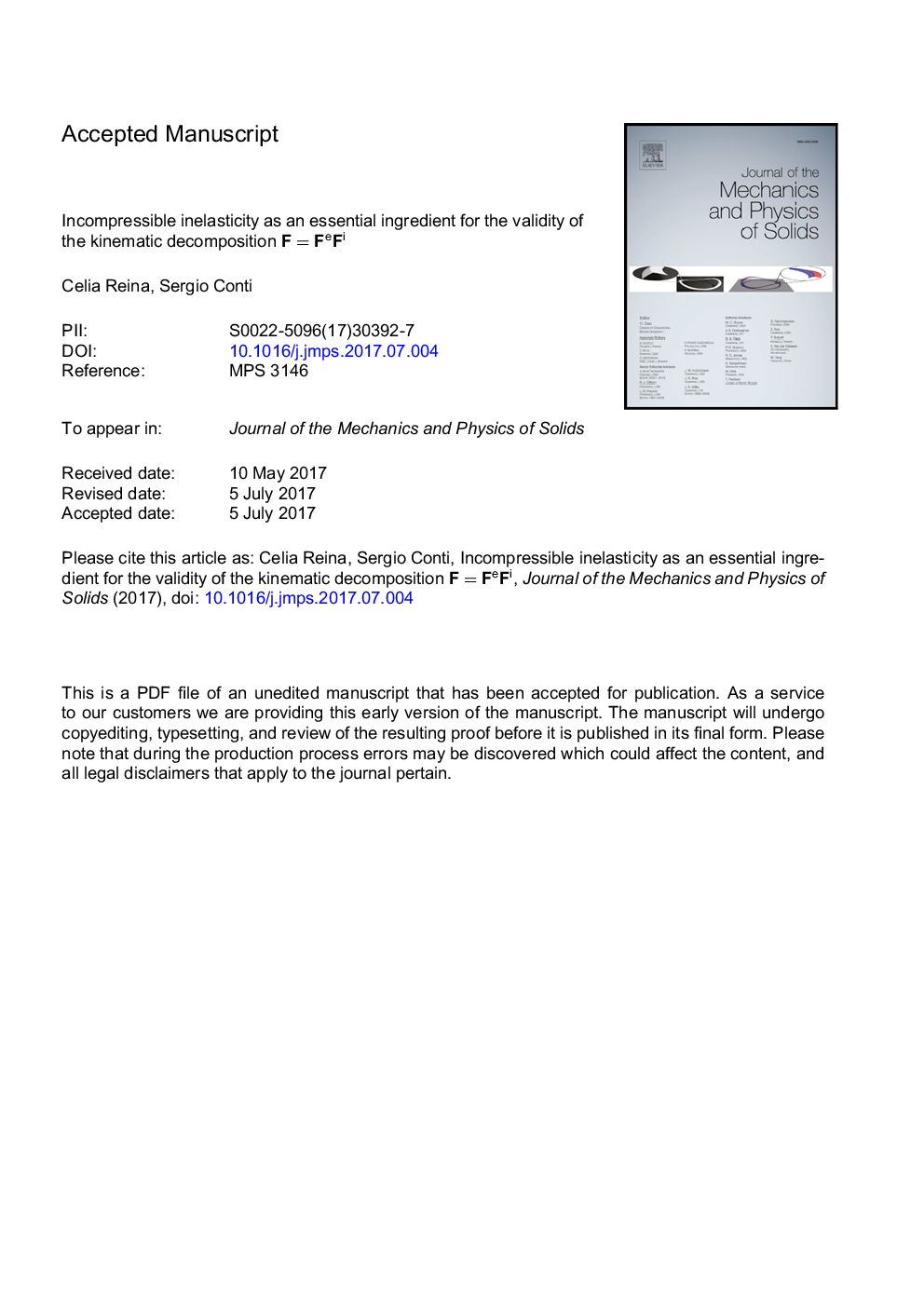| Article ID | Journal | Published Year | Pages | File Type |
|---|---|---|---|---|
| 5018180 | Journal of the Mechanics and Physics of Solids | 2017 | 27 Pages |
Abstract
The multiplicative decomposition of the total deformation F=FeFi between an elastic (Fe) and an inelastic component (Fi) is standard in the modeling of many irreversible processes such as plasticity, growth, thermoelasticity, viscoelasticty or phase transformations. The heuristic argument for such kinematic assumption is based on the chain rule for the compatible scenario (CurlFi=0) where the individual deformation tensors are gradients of deformation mappings, i.e.â¯F=DÏ=D(ÏeâÏi)=(DÏe)âÏi(DÏi)=FeFi. Yet, the conditions for its validity in the general incompatible case (CurlFiâ 0) has so far remained uncertain. We show in this paper that detFi=1 and CurlFi bounded are necessary and sufficient conditions for the validity of F=FeFi for a wide range of inelastic processes. In particular, in the context of crystal plasticity, we demonstrate via rigorous homogenization from discrete dislocations to the continuum level in two dimensions, that the volume preserving property of the mechanistics of dislocation glide, combined with a finite dislocation density, is sufficient to deliver F=FeFp at the continuum scale. We then generalize this result to general two-dimensional inelastic processes that may be described at a lower dimensional scale via a multiplicative decomposition while exhibiting a finite density of incompatibilities. The necessity of the conditions detFi=1 and CurlFi bounded for such systems is demonstrated via suitable counterexamples.
Related Topics
Physical Sciences and Engineering
Engineering
Mechanical Engineering
Authors
Celia Reina, Sergio Conti,
